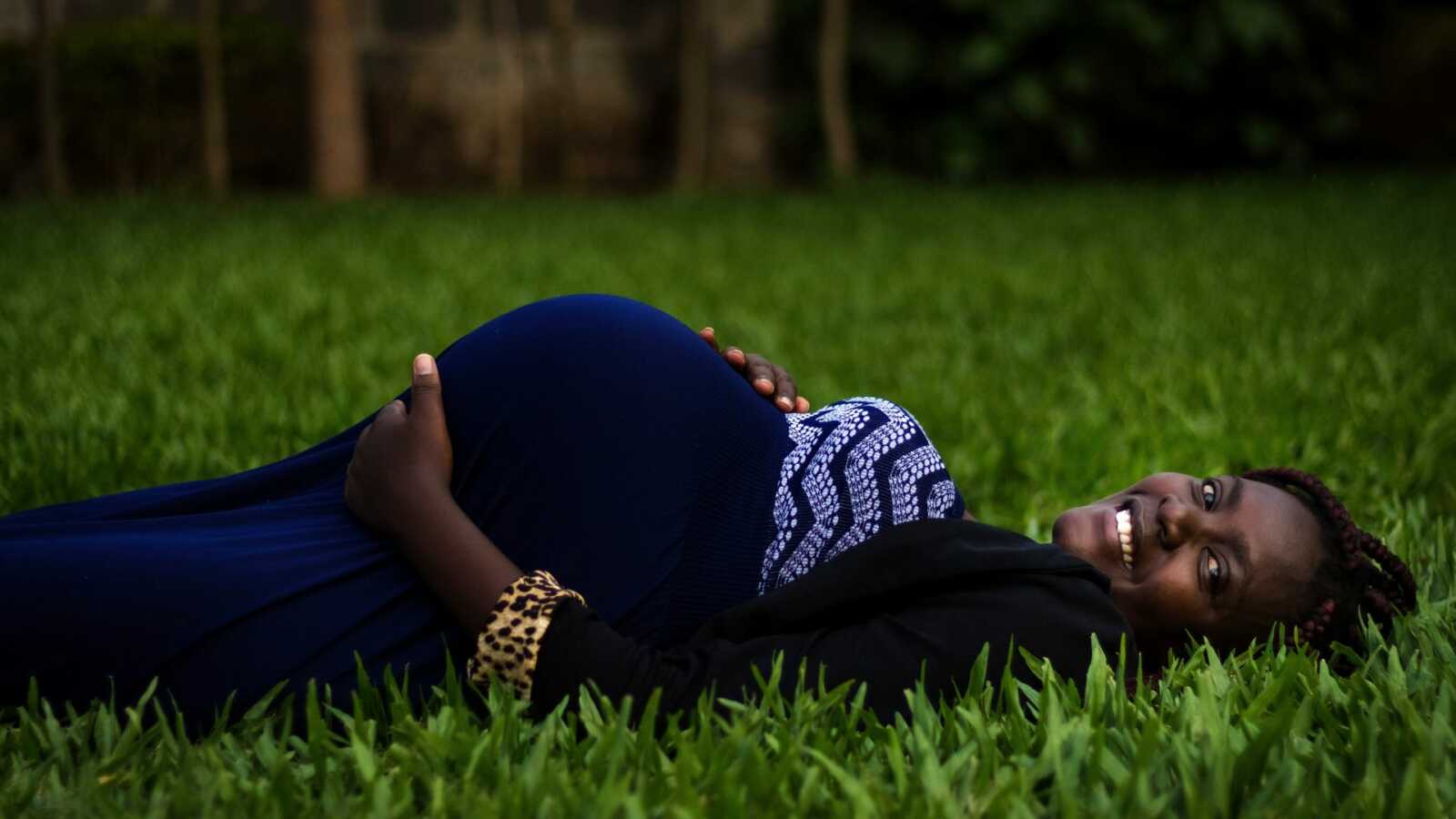Pregnancy is a unique experience for each person. Pregnancy symptoms week by week are largely the same but the intensity of these symptoms varies greatly between expectant mothers. Read on to learn what you can expect throughout each stage of pregnancy.
Early Pregnancy Symptoms (1st Trimester)
When doctors calculate due dates, the starting date is the first day of your last period. Technically, you aren’t yet pregnant. During those first three weeks, the egg becomes fertilized by the sperm and then implants into the uterine lining. It is unlikely that you will experience any symptoms during weeks 1–3.
Week 4–6
Most women take an at-home pregnancy test at 4–6 weeks and are likely to see a positive result. It is common to get a negative result despite being pregnant, as it is still early. When you find out you’re pregnant, begin a prenatal vitamin if you haven’t already.
The most common first sign of pregnancy is breast tenderness, which can occur as early as week 4. Other common symptoms include bloating, constipation, fatigue, or mood swings. It is normal for some women to experience zero symptoms.
Week 7–9
One of the most dreaded first-trimester symptoms of pregnancy rears its ugly head starting in the 7th week: morning sickness. This symptom can begin earlier, but it is most common during week 7 and tends to extend throughout the first trimester and even into the second. Morning sickness can look different and ranges from feelings of nausea to vomiting.
Similar symptoms from weeks 4–6 of pregnancy such as fatigue and mood swings will continue or show up. Frequent urination, headaches, and digestive issues are newer symptoms that can begin during this time.
Week 10–12
You will start to notice your belly growing and while weight gain can happen in the weeks leading up to this, your belly will begin to take shape. You may notice some pain around your abdomen, such as cramping. This pain is unlikely to go away throughout pregnancy so if the pain is excruciating, speak with your doctor about finding solutions to relieve it.
Hormonal acne can begin to occur around this time. The common pregnancy glow is a hormonal reaction that increases oil in the skin, which can lead to acne. There are some skincare ingredients that are not recommended for pregnant women, so before you begin a new skincare routine, ensure the products are safe for use.

Second Trimester Pregnancy Symptoms
With the start of the second trimester, symptoms you experience during the first can fade away, including morning sickness. For some, this trimester is known as the “easiest” one to manage and pregnancy symptoms week by week may largely stay the same. Take advantage of this time as much as possible by preparing for your baby so that when the third trimester comes along, you can relax (as best you can).
Week 13–17
Pregnancy can cause a reduction in blood volume, leaving you feeling dizzy. Changing positions more frequently and staying well hydrated can reduce those dizzying feelings. Stuffy noses and darkening of the skin, typically near the nipples, armpits, navel, and inner thighs, are other common pregnancy symptoms.
Some pleasant symptoms you may experience during the start of the second trimester include renewed energy, an increased appetite, and a high sex drive.
Week 18–22
You can expect to feel the first movements of your baby and those baby kicks can be very exciting! Feeling these kicks can vary between pregnant women, and may occur later if you have an anterior placenta. For many, your belly will look very pronounced during this time. Your breasts will become large as they prepare to produce breast milk.
Some not-so-fun symptoms that can crop up at this point could be heartburn, constipation, dry skin, and leg cramps. You may begin to have difficulty sleeping as you try to navigate your new size. Pregnancy pillows can be a huge relief to help with comfort and rest. Ligament pain is common as your body adjusts to make room for your growing baby.
Week 23–27
Towards the end of your second trimester, any symptoms you’ve had throughout could be exacerbated, such as backaches, leg cramps, and frequent urination. While you may still enjoy a high sex drive, your libido may begin to dwindle. Swelling, anxiety, and general discomfort are common as well.
Another unpleasant symptom that may arise is hemorrhoids. Often a result of constipation, hemorrhoids are swollen veins that pop up in the rectum due to increased blood flow and pressure. These can get worse when straining.
Third Trimester Pregnancy Symptoms
You’re in the home stretch! The third trimester is associated with an increase in overall discomfort. Week by week, pregnancy symptoms could worsen as your body continues growing to accommodate a growing baby.
Week 28–32
The most common change you may notice is an increase in your blood pressure. A yellow-colored liquid, called colostrum, may begin leaking from your breasts as your body continues producing breast milk. This can cause some breast tenderness.
Stretch marks, which a majority of women get, will start to look more pronounced as you continue growing. It may feel itchy so use creams or oils to help with relief.
As your body is preparing for delivery, you may notice sharp pains, such as tightness or hardening, near the uterus. While this can feel much like labor pains, it is actually Braxton Hicks. Keep in contact with your doctor if you are experiencing this as you could be going into premature labor.
Week 33–37
Your body is continuing to get bigger and the baby is taking up more space, which comes with many discomforts. You may not be able to eat as much food or require frequent trips to the bathroom. You could have shortness of breath or heartburn. Your baby’s movements will feel more significant and you may notice your baby “dropping” lower into your stomach as they get into position for birth.
Week 38–41
Around the 38th week, it is common for women to lose their mucus plug, which blocks the opening to their cervix to protect the baby from germs. It is not a tell-tale sign of labor as women could begin labor a few days to a couple of weeks after losing it. Your water may break around the 39-week mark and could feel like a gush of water or a slow trickle.
Once you reach 40 weeks, your OB/GYN may schedule an induction or c-section. You can usually stick it out through the 41st week and try to help start labor with movement. Before you know it, your little one will arrive!
Join the Love What Matters family and subscribe to our newsletter.
Read more stories like this:
A Guide To Managing High-Risk Pregnancy
10 Simple Self Care Tips For New Moms
Do you know someone who could benefit from reading this? SHARE this story on social media with family and friends.

